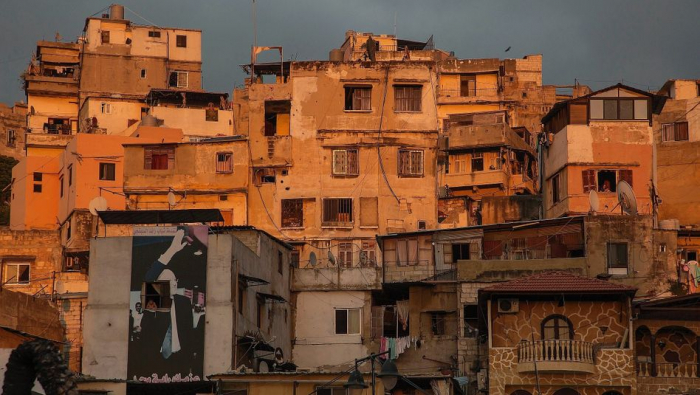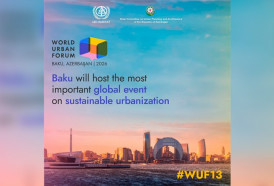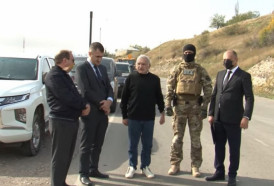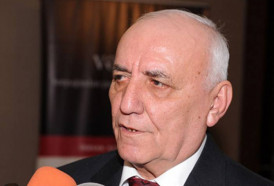It was a rather harmless beginning, as it so often is in Lebanon. Two-year-old Walid al-Manna was tired, perhaps unsurprising given the summer heat. But just a few hours later, he was no longer eating and was growing increasingly listless.
At midday last Sunday, his parents brought him to a doctor in their neighborhood of Kubba, located in the center of the Lebanese city of Tripoli. Due to the ongoing economic crisis, it was the last medical practice still operating in Kubba. The doctor said the boy's condition was serious, likely pneumonia, and he had to be taken to the hospital immediately. He also said that he had nothing to give to the boy except for a bit of the pain medication paracetamol.
The boy's father called the only public hospital in the city, but was told there were no beds available. He then began calling around to all of the some 20 private clinics in the city, but got the same answer everywhere he tried: Sorry, we are no longer accepting patients due to supply shortages. The family then began calling hospitals across northern Lebanon, before expanding their search around the rest of the country. They ensured each hospital that they were able to pay for treatment - but they were unable to find a single one that could help.
Walid was almost completely inert when his father Bilal al-Manna and some of his friends took him to the public hospital at 10 p.m., simply marching through to the intensive care unit. "The doctor really tried to help," says al-Manna. "He took an X-ray of the lungs and even performed a coronavirus test, which turned up negative."
Initially, al-Manna was told that the ventilator was defective, and then that there was no oxygen available. At 4 a.m. on Monday morning, Walid al-Manna slipped into a coma. Two hours later, he was declared dead.
Anger Yielding to Fear
Later that day, relatives, friends and neighbors carried the boy to his grave. They stood around the small bundle on the table, wiping the tears from their eyes. The imam quietly recited the funeral prayer, the father gave him a final kiss on the forehead and then the shroud was folded closed. His son would still be alive, said his father, if he had received treatment – if clinics were still accepting patients.
But the little boy's death did not produce a wave of protests, as similar cases had done in the past. It is as though the anger has yielded to fear – the fear of being dragged into the maelstrom that is accelerating by the day, pulling more and more people into hunger and desperation. It is a maelstrom that has hit Tripoli the hardest, Lebanon's second-largest city, with an estimated population of 500,000.

It is a quiet tumble into the void. The country is imploding, with hardly any electricity or diesel available and almost no replacement parts for generators. Medical equipment is no longer coming into the country because the importers have gone bankrupt, and there is a lack of medicines.
"In 14 days, we will close everything down except for chemotherapy and a handful of emergency procedures," says the surgeon Mustafa Allouch, a former member of parliament who is now a spokesman for the city's private clinics. They are no longer able to pay their suppliers, he says, and the government owes the clinics millions of dollars for the treatment of public officials and soldiers. "We can't go on."
For many years, Lebanon was the exception, an oasis of relative calm in a war-torn region. Whereas neighboring Syria plunged into civil war, Lebanon saw the steady growth of a strong middle class after its own civil war ended in 1990. There was a construction boom, and luxury hotels for Gulf tourists contributed to a booming economy. Freedom of opinion and a flourishing cultural life were more prevalent here than elsewhere in the region.
Systemic Collapse
Part of the economic upswing, however, was consistently rooted in the illusion of a strong currency. At the end of 1997, the Lebanese pound was pegged to the U.S. dollar, at a rate of 1 to 1,500. Banks paid up to 10 percent interest rates on deposits and loaned their own capital to the central bank for even higher rates – a situation that led a succession of governments to accumulate one of the highest sovereign debt loads in the world.
The system collapsed in October, and suddenly, there were no more dollars available, at least not at the official rate. What began with a relatively harmless downturn in the exchange rate quickly became an avalanche – and that in a country that imports almost all of its goods. Clothes, food and fuel became more and more expensive, unaffordable for most – a situation that pushed stores and companies into bankruptcy and the people into poverty.
The coronavirus has exacerbated the crisis, even if case numbers in the country are low. But during the three-month lockdown, the hotels and restaurants suffered and Lebanese living abroad were unable to return home – and unable to bring their money with them.
Public schools and hospitals have been largely neglected by the state over the last 30 years, leaving education and medical care up to the free market, which is now pulling those private clinics and schools into bankruptcy. Meanwhile, the Lebanese pound continues to plunge.
When the crisis began, tens of thousands of people across the country took to the streets, demonstrating against the banks and corrupt politicians. The revolution, as they called it, had begun, and it was centered in Tripoli. DJs set their systems up on balconies and the crowds danced in protest – even including young women, which is unusual for the conservative city.

The protesters demanded the installation of a technocrat cabinet, the return of the billions that corrupt politicians had misappropriated and reforms to the country's election laws. At that time, the pound had already fallen to half of its previous value. Tens of thousands of people gathered in Sahat al-Nour Square in Tripoli, with many camping out in tents. In winter, when the exchange rate continued to fall, the first bank branches went up in flames. Tires were burned in the streets and demonstrators blocked the roads.
spiegel
Tags:



















-1748093111.jpg&h=190&w=280&zc=1&q=100)






















-1748093111.jpg&h=120&w=187&zc=1&q=70')




